Lean Organisation
Why is it important?
Based on 20 years experience, working with clients, implementing Lean/Operational Excellence, Organisational Maturity, excell in the transformation and sustaining/continued improving of the subsequent performance. Organisational Maturity, defined as Vision, Mission and Values driven, rigorous Policy Deployment , well structured eg Span of Control (1:3:7), with standardised processes and clear Roles and Responsibilities, promoting employee performance, productivity and engagement (Respect!). This results in the elusive 'high-performance culture'
Our experience
Our industry experts and coaches have decades of experience structuring, enhancing and developing organisational and cultural behaviours in companies of different scales. From Metals & Mining to FMCG, Pharmaceutical to Aviation, Lean Coaching has always proven to be a strong partner to our clients in culture and behaviour improvement. Typically working with leadership and change agents of companies and applying Toyota Production System (TPS) approach, our goal is to make sure the change and capability to support it stays within the business and keeps growing together with maturity levels of our clients.
Lean / Operational Excellence Change Agent development
What is it?
Why is it important?
Key Elements/Terms
- Skill levels
- Multiskilling
- Upskilling
- Competency assessment
- Leadership skills
- Functional skills
- Soft skills
- PDP (personal development plan)
- 1-2-1 coaching
- Check-in
Lean Operator training
What is it?
Why is it important?
Key Elements/Terms
- Stability, Flow, Takt, Pull
- 8 types of waste, 5S
- Standard Work, Visual Management
- PDCA and A3 problemsolving
- Kaizen, Focused improvement
Lean Leadership Coaching
What is it?
Why is it important?
Key Elements/Terms
- '1 Minute Manager'
- Mentor- Mentee/Coach-Coachee
- Gemba Go and See
- Situational Leadership
- Model Behaviour
- Personal Development Plans (PDP)
Organizational Maturity
What is it?
Why is it important?
1) copy pasting tools, methods and systems - instead of these being 'pulled' as countermeasures to real problems from KPIs or strategic objectives
or 2) only implementing some aspects in some areas and stagnating - as opposed to letting it grow organically as fast and far as the organisational capability can follow (PxC=R)
Key Elements/Terms
- Holistic Sustainable Transformation
- Culture Change is a result, not the starting point
